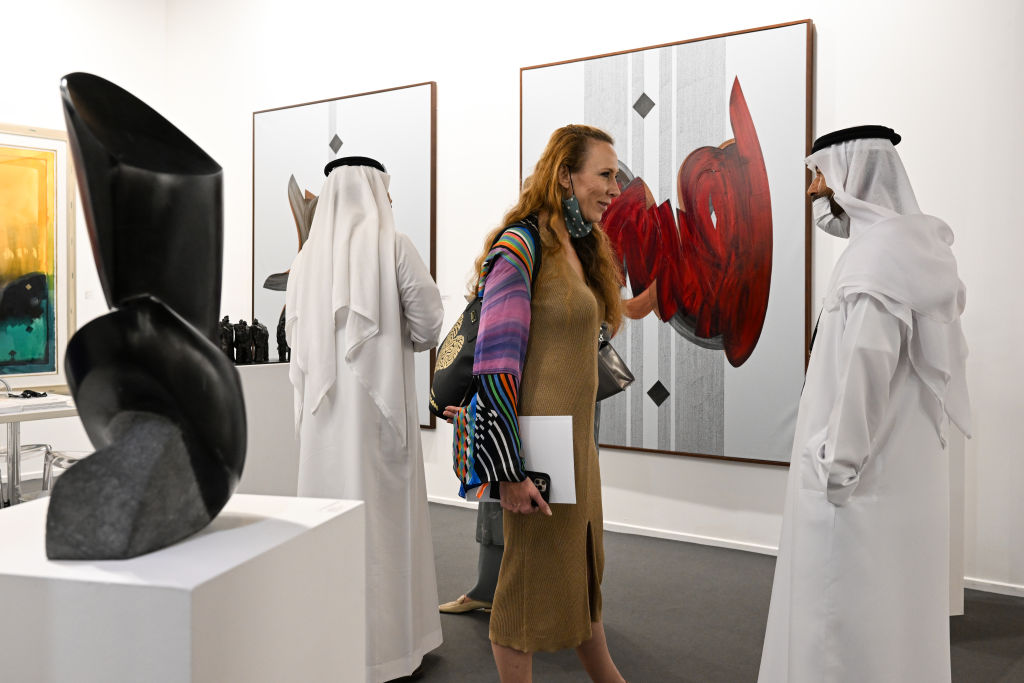As London faces off threats to its global status, Dubai is waiting in the wings

Since the result of the 2016 Brexit referendum on our future in the world and beyond the single market, one of the issues which has caused most angst and speculation has been the status of London as one of the world’s greatest financial centres. With the end of free movement of goods, services and people, many Remainers pointed spectral fingers at rivals like Paris, Amsterdam, Dublin and Frankfurt, cities which, still inside the EU, would sap the City of London’s strength and usurp her pre-eminent position.
The most apocalyptic fears have not been realised. Some had talked of hundreds of thousands of jobs in financial services and connected industries being lost: in fact most estimates currently hover around 7,000 to 8,000. It is true that nearly 500 institutions have set up new hubs within the EU, but this has not equated to a flight from London.
Although we are by no means in an end-state of post-Brexit financial regulation, the conditions in the City have not (yet) been rendered so uncompetitive as to draw business away to the continent. Indeed, some EU businesses have established offices in London in order to cater for the substantial and highly developed UK market.
Many reasons for this relative calm can be adduced. London has, of course, a critical mass all of its own as a financial centre, only rivalled on the global stage by New York, with a sophisticated ecosystem of bankers, lawyers and investment managers drinking from a deep well of liquidity. That extends into a great deal of “soft power” attractions: education, culture, retail and hospitality. To be blunt, the ‘masters of the universe’ would rather live in London, a world city, than fractious Paris, sleepy Dublin or staid Frankfurt.
Some observers, however, are looking beyond the immediate horizon, and factoring in longer-term geopolitical shifts in the landscape. If London can fend off the challenge from its continental rivals, it may be that a challenge can be perceived further east.
In Dubai, in the United Arab Emirates, an impressive superstructure is being created to attract global capital. There is a stock exchange, Dubai Financial Market, and the government has created the Dubai International Financial Centre, an entire district with 30,000 people working amid offices, shops, restaurants and cafés. It may lack the organic charm of the millennia-old City of London, but shiny office blocks and modern infrastructure count for a lot.
There is more to it than simply investment. Karim Souaid, managing partner of Dubai-based Growthgate Capital, says that his adopted home “is a financial hub and business centre that has a solid shot at picking serious business and trade volumes away from Hong Kong (after the Chinese crackdown on democracy protests) and from London (post-Brexit but more so after the war in Ukraine)”. He agrees that the physical and financial infrastructure is impressive, but there are other pull factors too.
“The confiscation of oligarchs’ assets (without much evidence of aiding and abetting Putin) and the freezing of their Swiss accounts (unprecedented even during Nazi times) will not scare just financial investors but home and commercial property buyers and depositors, from Russia and other emerging economies.” He notes that China already uses Dubai as an important destination for ports of call, trade and energy, and that in geographical terms the city can serve South Asia, Turkey, South Africa and now Russia.
So what is lacking? “What does it take for Dubai to succeed: inviting bankers from London, Hong Kong and Moscow to move over, get a golden visa and start working”, Souaid says. The UAE has already moved substantially in this direction, as in 2019 it introduced a new system of long-term residence visas which allow newcomers to establish themselves without a UAE sponsor, and to own 100 per cent of their businesses (previously there had to be national investors too).
London must not rest on its laurels. It is locked in an eternal battle with New York for global supremacy, but the world is opening up and diversifying, especially as the strictures of the pandemic recede. There is change in the air, and a flight of capital to the Gulf is by no means impossible. As Souaid remarks, “There are more terrible places to move your family to, I would assume.”